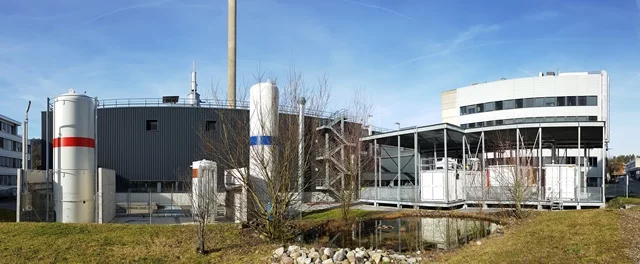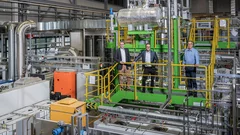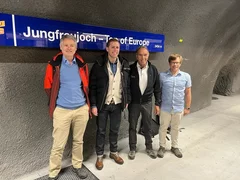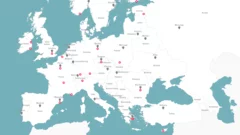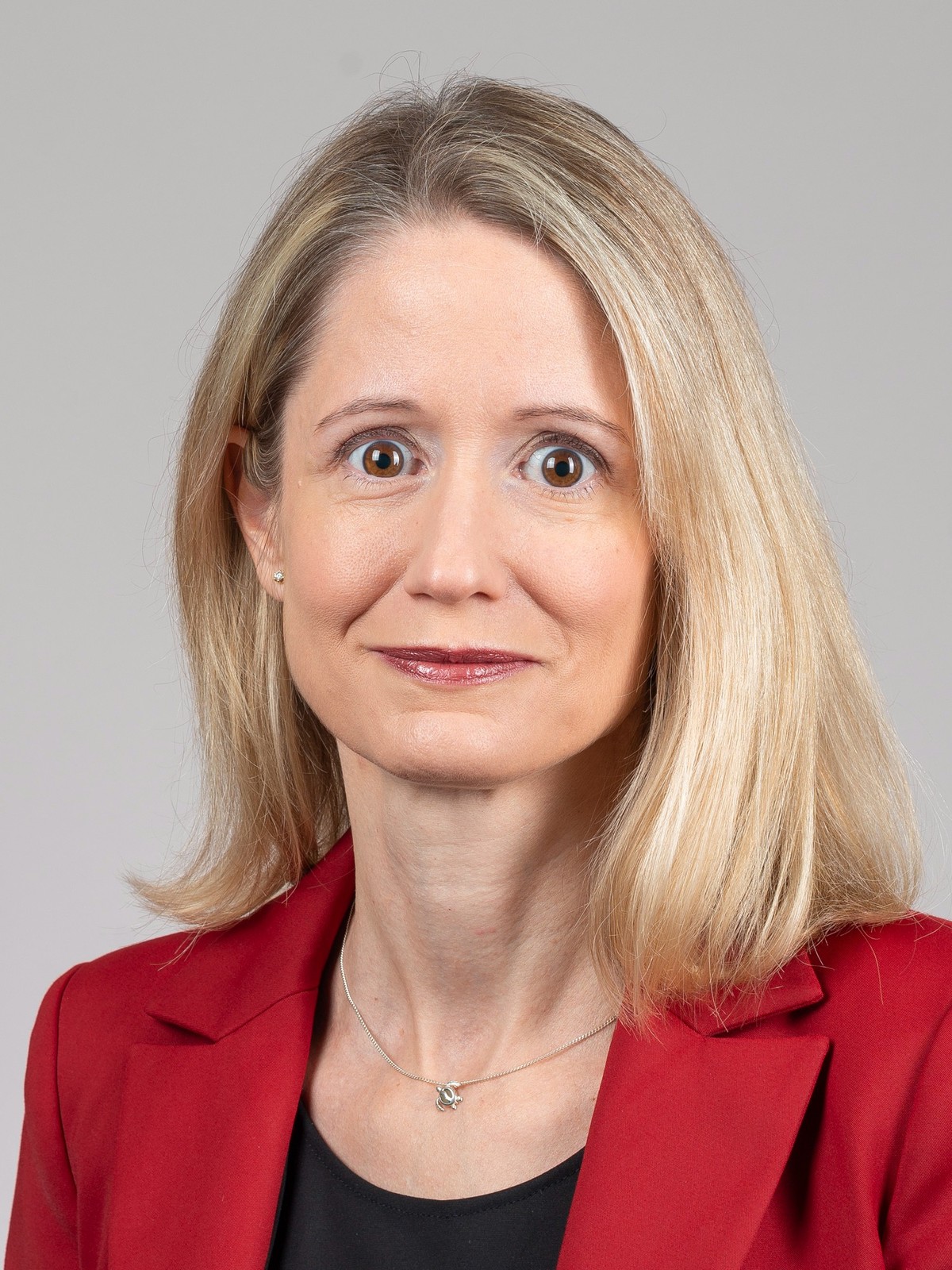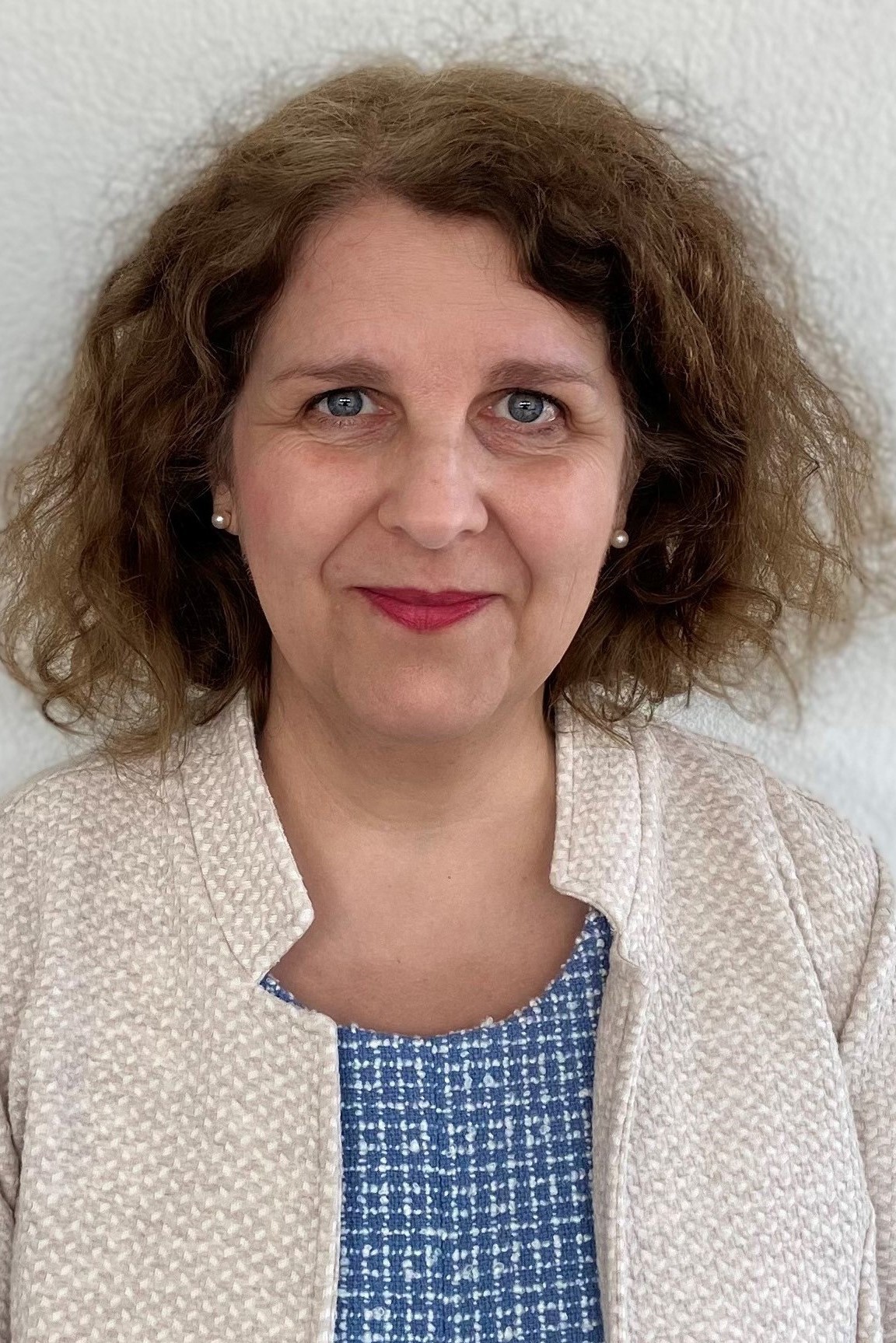Energy and Environment Research Division
Research at PSI comprises all aspects of human energy use, with the ultimate goal of promoting development towards a sustainable energy supply system. Technologies are being advanced for the utilization of renewable energy sources, low-loss energy storage, efficient conversion, and low emission energy use. Experimental and model-based assessment of these emissions forms the basis of a comprehensive assessment of economic, environmental and social consequences, for both present and future energy supply systems.
Division Head: Prof. Dr. Thomas Justus Schmidt
Energy Briefing Event 2023
The Energy and Environment Division of the Paul Scherrer Institut PSI successfully hosted their second Energy Briefing Event at the Zentrum Paul Klee in Bern. The event focused on the potentials and challenges associated with the production, regulation, and utilization of synthetic fuels. Representatives from WWF, Avenergy, PSI, and BAZL shared their expertise and insights on this topic.
A heartfelt appreciation goes out to Ulrich Koss (Metafuels), Theo Rindlisbacher (BAZL), Christian Bach (Empa), Thomas J. Schmidt (PSI), Thomas Häusler (WWF Switzerland), Daniel Hofer (Avenergy Suisse), and our moderator Stephan Lendi for their invaluable contributions and insightful perspectives.
Energy Briefing Event 2022
On June 28th, 2022, the Energy Divisions (ENE and NES) at PSI hosted their first Energy Briefing Event at the Kursaal in Bern. Knowledgeable voices from industry, research and government shared insights in a dialogue on the feasibility of the Net Zero goal and what next steps are required to achieve this collectively.
A big thank you to Daniela Decurtins (GazEnergy), Particia Sandmeier (Hitachi Energy), Martin Naef (ABB), Pascal Previdoli (BFE), Thomas Schmidt (PSI), Christian Verhoeven (GE), Peter Richner (Empa), Andreas Pautz (PSI) and our Moderator Stephan Lendi for their valuable contributions and insights!
Highlights & News
Combining forces for the energy transition
The Paul Scherrer Institute PSI and the start-up AlphaSYNT are piloting a new approach for storing energy in the form of methane gas.
High-ranking visitor on the Jungfraujoch Research Station
On Friday 19th of August, US Ambassador to the Swiss confederation Scott Miller visited the Jungfraujoch, where PSI scientists conduct research at 3580 meters above sea level.
PSI’s own brand
Components made to order in PSI’s express workshop
PSI at the Swissmechanic Business Day
When: 6. September 2022, 9am - 6pm
Where: Halle 622 Zürich-Oerlikon
Topic: «ENERGIE – Geht der Schweiz der Strom aus?»
Language: German
On the Swissmechanic Business Day various renowned speakers offer perspectives from on the topic "ENERGY - Is Switzerland running out of electricity?". Innovations and products will be exhibited, including the Paul Scherrer Institute's ESI Cube - a mobile exhibit of the "Energy System Integration" experimental platform, which is available to research and industry partners. The Cube makes the complex topic of energy storage and conversion comprehensible in a playful way.
Marco Ranocchiari takes on the lead of the ESI project as of July 1st, 2022!
«I am very excited to lead a strategic project and the extraordinarily competent and innovative ESI team for PSI, to help contribute to the transition to net zero.»
European map of aerosol pollution can help improve human health
Researchers have measured and determined the sources of aerosol pollution at 22 locations in Europe.
Power-to-gas system for energy independence
New technology provides synthetic natural gas for domestic heating
Atmospheric globe-trotters
The CLOUD experiment reveals a new mechanism by which atmospheric particles form. The particles rapidly travel the world, globally impacting cloud formation and climate.
Deep learning to avoid weather disappointments
Saharan dust storms played havoc with weather predictions. Invertible neural networks to retrieve aerosol properties from light scattering data may help.
